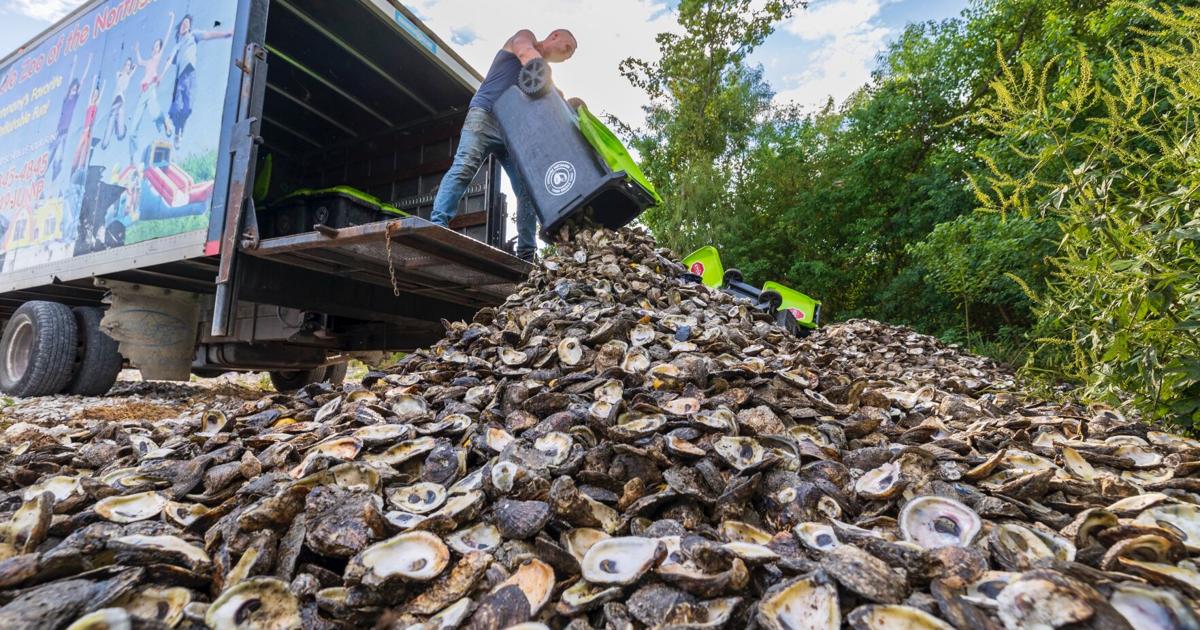Louisiana
Campaign to prevent child abuse online launches as Louisiana agents see increase in cases

BATON ROUGE, La. (WAFB) – There’s a new push to help protect your child while they are online. The Department of Homeland Security launched its Know2Protect campaign on Wednesday. It’s shining a light on the crime of online child sexual exploitation and abuse so that families understand the risks.
“We have more cases than are humanly possible to work,” said Supervisory Special Agent David Ferris.
Ferris works in the cyber crime unit in the Louisiana Attorney General’s Office.
“We’re seeing a lot more children online. You’re seeing a lot more individuals who have access to the internet 24 hours a day,” explained Ferris.
Ferris said they are seeing multi-fold increases in the number of cases with the increases starting back in 2020. He said in 2021, there were about 4,000 cases. In 2022, the number increased to 6,100. In 2023, it almost doubled to more than 11,000 cases. Agents attribute the increase to social media companies reporting suspected bad behavior as technology constantly changes.
Ferris said don’t cut off the internet completely because that’s not realistic. He explained that you should do research to know about the apps your child is using. He also added that parents should keep phones and the internet out of a child’s room and keep it in an open space where you can control the environment.
“It’s a window to the outside world and so just like your child can see everything that’s going on through that social media app, the world gets to see everything that’s going on with your child,” said Ferris.
Ferris said they are starting to see sextortion cases involving the use of AI (artificial intelligence).
If you believe a child has been the victim of online exploitation or abuse, call the Louisiana Attorney General’s Office Cyber Crime Unit at 225-326-6100.
Click here to report a typo.
Copyright 2024 WAFB. All rights reserved.

Louisiana
Heart of Louisiana: Holly Beach

HOLLY BEACH, La. (WVUE) – A southwest Louisiana beach known as the “Cajun Riviera” is getting the attention of some out-of-state travelers who are thrilled to find a large, sandy beach without crowds.
Holly Beach is a wide strip of sand on the Gulf of Mexico that stretches for 20 miles in the extreme southwest corner of the state. It’s an area that has been battered in recent years by hurricanes, but is now on the rebound, as Dave McNamara shows in the Heart of Louisiana.
For more, visit the Heart of Louisiana archive here.
See a spelling or grammar error in our story? Click Here to report it. Please include the headline.
Subscribe to the Fox 8 YouTube channel.
Copyright 2024 WVUE. All rights reserved.
Louisiana
Kansas has new abortion laws while Louisiana may block exceptions to its ban

TOPEKA, Kan. (AP) — Kansas is requiring abortion providers to share new patient information with the state and increasing funds to anti-abortion centers, while in Louisiana bills to loosen its restrictive ban face an uphill battle, thanks to Republican supermajorities in both Legislatures.
Democratic lawmakers in Louisiana are pushing bills to add exceptions, including in cases of rape and incest, to the state’s near-total abortion ban. A GOP-dominated House committee began its review of those measures Tuesday, but similar proposals failed last year.
Meanwhile in Kansas, the GOP-controlled Legislature on Monday overrode all four of Democratic Gov. Laura Kelly’s vetoes of measures sought by anti-abortion groups. Starting July 1, abortion providers must ask patients why they are terminating their pregnancies and report the answers to the state, and it will be a specific crime to coerce someone into having an abortion.
Kansas also will offer both direct aid to anti-abortion centers and tax breaks for them and their donors. The aim of anti-abortion centers is to dissuade people from getting abortions while offering supplies, classes and other services.
Anti-abortion groups still exert a strong influence over Republicans in statehouses across the U.S. That’s even after votes on ballot initiatives in multiple states demonstrated public support for abortion rights following the U.S. Supreme Court’s Dobbs decision in 2022 — with the first one in Kansas in August 2022.
“We did not put this to bed,” Kansas Senate Democratic Leader Dinah Sykes said Tuesday. “Those people who showed up to vote who had not voted before need to show up in November to vote.”
The two states, nearly 400 miles (700 kilometers) apart, have dramatically different abortion laws because of their top courts. In August 2022, just months after Dobbs, Louisiana Supreme Court rejected a legal challenge to that state’s near-total abortion ban, allowing the prohibition to go into effect. That was 10 days after Kansas voters decisively affirmed the position in a 2019 state Supreme Court ruling that the state constitution protects abortion rights.
Kansas doesn’t ban most abortions until the 22nd week of pregnancy. Kelly is a strong supporter of abortion rights and has consistently vetoed the GOP-controlled Legislature’s abortion measures.
She is expected to veto a fifth measure sought by abortion opponents, a bill aimed at ensuring that judges order child support payments apply to fetuses so that the mother’s pregnancy expenses are covered. It would be similar to a Georgia law.
Critics believe the Kansas child support measure advances the anti-abortion movement’s long-standing goal of giving embryos and fetuses legal and constitutional protections on par with those of the people carrying them. There are dozens of proposals in at least 15 states aimed at promoting fetal rights, though most have not advanced, according to an Associated Press analysis earlier this year using the bill-tracking software Plural.
“If we’re going to say that fetuses now have legal rights, that is going to affect downstream a whole bunch of other things,” state Sen. Ethan Corson, a Kansas City-area Democrat, said before the measure passed last week.
But Kansas has had a law in place since 2007 that allows people to face separate charges for what it considers crimes against fetuses, and a 2013 state law declares that “unborn children have interests in life, health and well-being,” though it isn’t enforced as a limit on abortion.
The child support bill wouldn’t change state policy on the legal status of fetuses, said Kansas Senate Judiciary Chair Kellie Warren, a Kansas City-area Republican.
“The real impact of this bill is helping women,” she said.
Abortion opponents also have touted the other measures as helping pregnant women and girls, in part by gathering better data about abortion so lawmakers can set clearer policy.
One measure continues to give $2 million a year in direct aid to anti-abortion centers that provide free supplies and services. Another exempts them from paying the state’s 6.5% sales tax on what they buy and gives their donors a state income tax credit.
Kansans for Life, the state’s most influential anti-abortion group said in a statement Monday that the measures “seek to meet Kansans where they are and save as many lives as possible.”
Meanwhile, many Republicans reject the argument that the August 2022 vote means Kansas voters expect lawmakers to stop regulating abortion.
“I think most Kansans would agree that we did want certain safeguards,” said GOP state Sen. Renee Erickson, of Wichita.
Louisiana’s only exceptions to its abortion ban are when there is substantial risk of death or impairment to the patient in continuing a pregnancy and when the fetus has a fatal abnormality that makes a pregnancy “medically futile.”
Earlier this year, lawmakers rejected an effort to let voters decide whether abortions should be legal in Louisiana. The legislation proposed an amendment to Louisiana’s Constitution to enshrine reproductive rights for women, including access to birth control, abortion and infertility treatments.
Public opinion polls nationwide, including one in Louisiana conducted in March 2023 by Louisiana State University, have found that the majority oppose the most restrictive bans in the state.
During the Louisiana House committee’s first review Tuesday of bills adding new exceptions, Democrats shed tears and raised their voices in pleading for exceptions to the current law for rape and incest.
Democratic state Rep. Alonzo Knox, of New Orleans, questioned why young girls “who have been violated in the most unfathomable way” should be forced to give birth and be repeatedly traumatized by the experience.
“Not only that, she gives birth to a child that she has no knowledge or education about how to care for,” he added.
The committee expects to take a vote next week. Sponsoring state Rep. Delisha Boyd, another New Orleans Democrat, said she will try to sit down with Republican lawmakers and GOP Gov. Jeff Landry to see whether she can amend the bill to increase its chances of passage.
Landry, elected last year, replaced term-limited Democratic Gov. John Bel Edwards, who supported some abortion restrictions but was a vocal backer of some exceptions.
___
Cline reported from Baton Rouge, Louisiana.
Copyright 2024 The Associated Press. All rights reserved. This material may not be published, broadcast, rewritten or redistributed.
Louisiana
Millions of pounds of oyster shells are being recycled to help restore the Louisiana coast

One night in March, Jason Pitre left his Bayou Rosa Oyster Farm in Leeville with sacks of oysters bound for a fundraiser in New Orleans. He’d just pulled those oysters from the waters of Bayou Lafourche, the same his family has worked for four generations.
As he opened each oyster, he knew that eventually their shells would be headed back to the coastal again.
The shells were collected during the event and fed into a stream of oyster shells, measured in the millions of pounds, that will be used to restore Louisiana oyster reefs. That’s helping cultivate more oysters, boosting ecosystems around them and contributing to coastal restoration efforts.
Containers for oyster shells only outside Bourbon House in the French Quarter of New Orleans on Friday, April 5, 2024. They will be used to help rebuild the coast. (Photo by Chris Granger, The Times-Picayune)
“I know the effect these reefs have on our living shoreline,” said Pitre, a member of the United Houma Nation who counts oyster farming as part of his heritage. “It’s rewarding to know that what I grow will go back into the water to help the coastal restoration fight that we’re in. It’s this whole circle of life being completed.”
Pitre was one of a half dozen oyster farmers serving samples of their harvests at Shell-a-Bration, the annual fundraiser held at Audubon Zoo for the Oyster Shell Recycling Program. The initiative is part of the Coalition to Restore Coastal Louisiana, a New Orleans-based nonprofit that advocates to protect the state’s coast.
The Oyster Shell Recycling Program works with restaurants to collect oyster shells that would otherwise be headed to the landfill and puts them back to work for the coast.
Restoring the loop

Oysters stacked and waiting to be chargrilled at Bourbon House in the French Quarter of New Orleans on Friday, April 5, 2024. (Photo by Chris Granger, The Times-Picayune)
The shells become the building blocks for reef restoration projects, and the coalition has been working specifically with indigenous communities, selecting project areas where they can help protect sites of special cultural and environmental significance.
The program is 10 years old, but the idea is not a new one.
“It’s filling a gap in a process of returning shells to the wild, a process that’s been around since people started eating oysters, because people always knew they provide habitat for more oysters,” said Darrah Bach, recycling program manager for the coalition.
But without direct connections to oyster lease holders, most restaurants simply throw shells in the trash like all the other kitchen waste.

Oyster remains at Bourbon House in the French Quarter of New Orleans on Friday, April 5, 2024. (Photo by Chris Granger, The Times-Picayune)
“We’re restoring that loop, giving restaurants a way to get shell back to where it can do the most good,” she added.
Oyster reefs beget more oysters. Baby oysters need a platform on which to grow, and the shells of other oysters are ideal for this purpose. As oysters layer up upon oysters, reefs form and grow higher and thicker.

Shucking oysters at Bourbon House in the French Quarter of New Orleans on Friday, April 5, 2024. (Photo by Chris Granger, The Times-Picayune)
This creates habitat for other sea life, but the benefits of healthy and restored reefs are far reaching. They can serve as buffers between the open water, communities and habitats along the coast. During storms, reefs act as underwater speed bumps, and even in calmer times they break up the wave energy approaching fragile coastal features.
One vivid example is playing out in Plaquemines Parish, in Adams Bay, where the coalition and its partners deployed 150 tons of shells to restore a reef to better protect what’s known as the Lemon Tree Mound.
While the space is an ancient Native American archaeological site, saltwater intrusion and wave action killed its namesake trees and threatened to wipe out the mound. Since the reef restoration began here in 2021, the mound’s grassy footprint has been expanding behind this rampart-like reef.
Expanding the harvest

Serving fresh oysters at Bourbon House in the French Quarter of New Orleans on Friday, April 5, 2024. (Photo by Chris Granger, The Times-Picayune)
The Oyster Shell Recycling Program has steered some 14 million pounds of oyster shells back to the coast over 10 years, and the 30 restaurants participating now contribute about 1.5 million pounds a year.
To customers the recycling process is largely invisible, and for restaurants it’s simply a matter of steering shells to bins for recycling collection. Many of the biggest names in the New Orleans oyster scene take part, including Acme Oyster House, Felix’s, Drago’s, Casamento’s and Sidecar.
Dickie Brennan’s Bourbon House in the French Quarter was the first restaurant to sign up for the program, and today, every one of the roughly 2,000 oysters shucked daily at its busy oyster bar join the reef restoration effort. When the same restaurant group acquired historic Pascal’s Manale Restaurant last year, one of the first orders of business was to add its oyster bar to the program also.

Wear and tear evidence from years of shucking oysters on a counter at the oyster bar at Bourbon House in the French Quarter of New Orleans on Friday, April 5, 2024. (Photo by Chris Granger, The Times-Picayune)
Recycling bins at the restaurants are emptied several times a week, and the shells are hauled to a curing site in St. Bernard Parish, where they sit in the sun and open air until they’re ready to deploy.
The program charges restaurants for the service, likening it to any other recycling or waste disposal service.
However, now there’s help available to cover that cost. In January, the state enacted a new tax credit for restaurants that recycle oyster shells, at a rate of $1 per 50 pounds of shells recycled.
“We’re hoping that will be a big motivator for more restaurants to join the program,” Bach said.
The tax credit comes as the coalition is also expanding the geographical reach of its recycling program. Right now, all participating restaurants are in the New Orleans area, but the group wants to add restaurants in Baton Rouge and is now looking for contractors to haul shells. The group is eyeing potential further expansion with restaurants around Lafayette and Houma.

Shucking oysters at Bourbon House in the French Quarter of New Orleans on Friday, April 5, 2024. (Photo by Chris Granger, The Times-Picayune)
Making connections
Shell collection was temporarily shut down in the early phases of the pandemic, when restaurants were closed. But participation grew as restaurants started coming back, with assistance from one of the coalition’s partners.
Chef’s Brigade is a grassroots group that quickly formed to help keep New Orleans restaurants in business during the bleakest part of the pandemic — and founder Troy Gilbert, an advocate for coastal restoration, connected many of these restaurants with the recycling program along the way.

A sack of raw oysters at Bourbon House in the French Quarter of New Orleans on Friday, April 5, 2024. (Photo by Chris Granger, The Times-Picayune)
Today Chef’s Brigade also operates a program called Chefs on Boats, which brings restaurant staff out on boat tours to the front lines of coastal loss and restoration, including to oyster reefs built on recycled shells.
“They’re making that connection between what they’re doing in their restaurants, where it comes from and the good those shells could do again, why it’s worth making the change in their operations,” Bach said.
The effort has also become a recruiting tool for the recycling program, giving a firsthand perspective on the difference restaurants can make through one change in their operations. As more people learn about the oyster shell recycling program, it’s also making that connection between restaurant customers and oyster aficionados.

Oysters stacked and waiting to be chargrilled at Bourbon House in the French Quarter of New Orleans on Friday, April 5, 2024. (Photo by Chris Granger, The Times-Picayune)
The Coalition to Restore Coastal Louisiana has public access recycling bins situated around New Orleans, where people who open oysters at home can recycle shells at no charge. The public can support the program through contributions, and there are also hands-on volunteer opportunities with shell bagging events through the year.
“Another way people can support this is just to ask at the restaurants they visit if they recycle,” she said. “That helps build awareness.”
-

 Education1 week ago
Education1 week agoVideo: Dozens of Yale Students Arrested as Campus Protests Spread
-

 World1 week ago
World1 week agoEU sanctions extremist Israeli settlers over violence in the West Bank
-

 Politics1 week ago
Politics1 week agoDemocrats hold major 2024 advantage as House Republicans face further chaos, division
-

 Politics1 week ago
Politics1 week agoFetterman hammers 'a–hole' anti-Israel protesters, slams own party for response to Iranian attack: 'Crazy'
-

 World1 week ago
World1 week agoPeriod poverty still a problem within the EU despite tax breaks
-

 Politics1 week ago
Politics1 week agoA battle over 100 words: Judge tentatively siding with California AG over students' gender identification
-

 Movie Reviews1 week ago
Movie Reviews1 week agoShort Film Review: Wooden Toilet (2023) by Zuni Rinpoche
-

 News1 week ago
News1 week agoUniversal Studios Tram Crashes, 15 Injured, 1 Critical







/cdn.vox-cdn.com/uploads/chorus_asset/file/24931307/236791_Apple_iPhone_15_and_15_Plus_review_DSeifert_0010.jpg)











